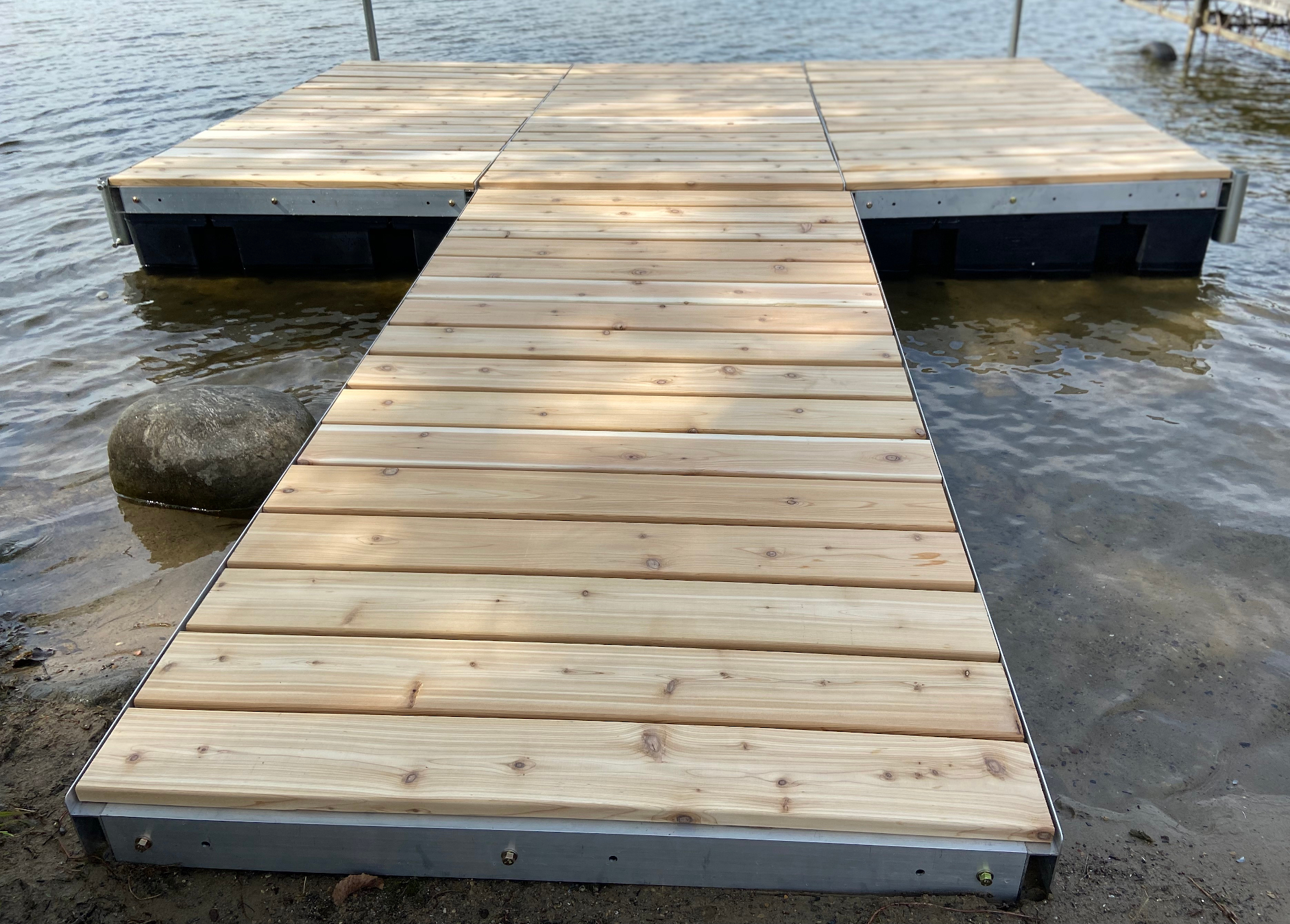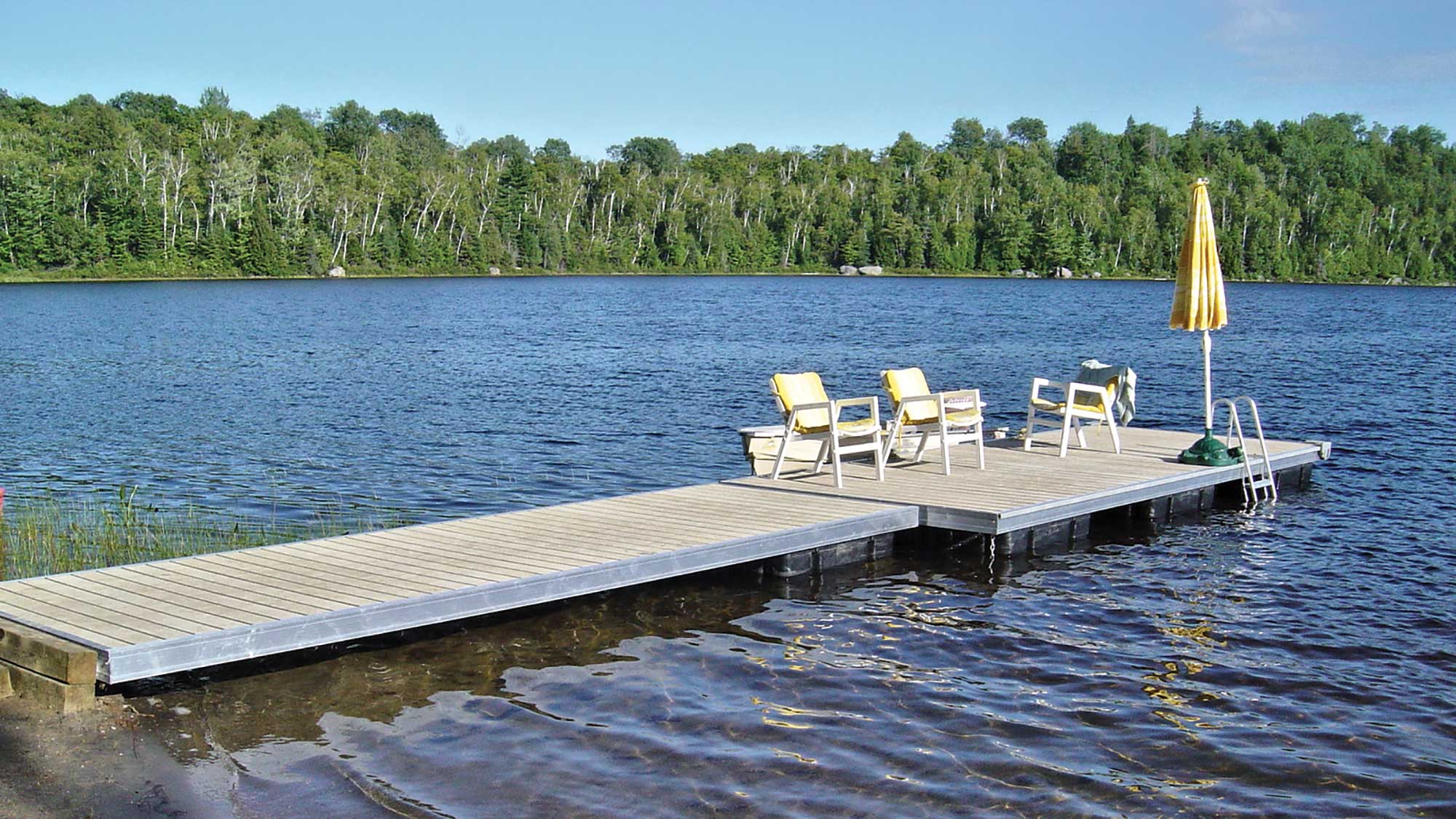Optimizing Your Outdoor Room with Specialized Floating Dock Providers
Optimizing Your Outdoor Room with Specialized Floating Dock Providers
Blog Article
Floating Docks: The Ideal Option for Versatile Water Accessibility
Floating docks present a compelling remedy for a variety of water gain access to requires, supplying versatility that transcends typical mooring alternatives. The modular nature of floating docks promotes customization, catering to certain demands.
Advantages of Floating Docks
Floating docks deal many benefits that enhance water gain access to for different applications. Their capability to drop and increase with changing water levels makes them especially helpful in settings with changing tides or seasonal variants. This flexibility ensures that vessels can conveniently anchor without problem for the water's deepness, giving a reliable platform for recreational, industrial, and industrial uses.
In addition, floating docks are commonly built from resilient products that resist corrosion, making them ideal for long-term usage in marine atmospheres. Their installment is normally less invasive than traditional set docks, minimizing the environmental influence and promoting quicker release (floating dock services). This versatility permits much easier relocation or reconfiguration according to customer demands or environmental changes
Safety is an additional crucial benefit; floating docks can offer secure gain access to for individuals boarding or disembarking from boats and reduce the risk of mishaps related to unpredictable surface areas. They can be developed to fit a selection of accessories, such as cleats and fenders, enhancing capability. Overall, floating docks represent an efficient remedy for improving water gain access to across varied fields while advertising safety and security and environmental sustainability.

Kinds Of Floating Docks
Numerous kinds of floating docks provide to different requirements and atmospheres, each created with certain attributes to enhance functionality. The most usual types include modular docks, which include interlacing areas that permit for easy personalization and development. These docks are ideal for leisure usage, as they can be customized to fit numerous watercraft dimensions and water conditions.
One more preferred choice is the stationary floating dock, which remains anchored in position but floats with changing water degrees. floating dock services. This kind is particularly suited for locations with minimal tidal variations, supplying steady accessibility for fishing or swimming. Additionally, there are drive-on docks, which include a sloped style that allows boats to quickly drive on and off, making them suitable for personal watercraft and smaller vessels
For commercial applications, durable floating docks are offered, created from strengthened products to hold up against significant loads and extreme aquatic settings. Lastly, environment-friendly floating docks make use of sustainable materials and layouts to lessen ecological impact, frequently incorporating features like plants to sustain neighborhood wildlife. Recognizing the different types of floating docks ensures that individuals can choose the most appropriate remedy for their certain demands.
Installment Refine Review
An effective setup of floating docks needs careful planning and attention to information to make sure optimal efficiency and safety. The first step involves assessing you could try this out the site conditions, consisting of water depth, existing, and possible challenges. This analysis notifies the selection of the appropriate dock products and layout tailored to the specific setting.
Next, getting necessary authorizations is crucial, as lots of territories have regulations relating to construction on water bodies. When authorizations are safeguarded, the installation can continue. Begin by preparing the foundation, which may involve anchoring systems or pilings tailored to the dock type and local conditions.
Adhering to the structure arrangement, construct the dock areas according to maker requirements. Make sure that all parts are firmly attached and lined up to withstand ecological stresses. Placement the dock in the assigned area, guaranteeing it is level and stable.

Maintenance Tips and Ideal Practices
After the setup process is complete, ongoing upkeep plays a crucial duty in making sure the longevity and functionality of floating docks. Normal inspections must be conducted to recognize any signs of damage, wear, or damage - floating dock builder. Inspect for any type of loose fittings, splits, or separation in the dock sections, as these can jeopardize structural stability
Cleaning up the dock is vital to remove particles, algae, and various other build-up that can impact its look and safety and security. Make use of a mild stress wash regularly to maintain cleanliness without causing damage to the surface. Additionally, applying a safety sealant every few years have a peek here can aid enhance long life and resist ecological wear.
Take note of the mooring lines and anchors, guaranteeing they are totally free and safe from deterioration. Change any degraded elements immediately to avoid risks. Seasonal adjustments may likewise be necessary; during extreme climate problems, rearranging or strengthening the dock can prevent damage.
Applications for Floating Docks
Floating docks offer a wide range of applications, satisfying both business and recreational demands. In leisure setups, they give seamless accessibility to waterways for tasks such as boating, fishing, and swimming. Their adjustable nature enables for installation in varying water levels, making sure risk-free and stable accessibility despite tidal fluctuations.
Readily, floating docks are indispensable for marinas and beachfront organizations. They help with the docking of vessels, allowing effective dumping and filling of items. Their modular design permits easy growth or reconfiguration to fit transforming service demands, making them perfect for boat services, trip procedures, or angling charters.
Additionally, floating docks are utilized in environmental applications such as water research and environment repair. They can act as platforms for clinical research studies, keeping an eye on water top quality, or performing wildlife studies without disturbing sensitive ecological communities.
In commercial contexts, floating docks are utilized in construction projects, offering accessibility to hard-to-reach areas for tools and personnel. Their convenience, durability, and minimal influence on the setting make them an optimum selection for a vast array of applications, enhancing both performance and availability in numerous water-based settings.
Conclusion
In conclusion, floating docks stand for an optimum solution for diverse water gain access to requires, owing to their flexibility, resilience, and modular layout. These frameworks facilitate secure mooring for various applications while lessening ecological impact during installment. The minimized maintenance needs additionally enhance their usefulness. Therefore, floating docks function as a beneficial property for recreational, industrial, and ecological tasks, making certain trustworthy access to waterways and advertising lasting practices in water settings.
Floating docks present an engaging remedy for a selection of water access requires, providing adaptability that transcends standard mooring alternatives.Floating docks offer various benefits that enhance water gain access to for various applications. In general, floating docks stand for an efficient solution for improving water gain access to visit this site across diverse industries while advertising security and environmental sustainability.
An additional preferred option is the fixed floating dock, which stays anchored in place however drifts with changing water degrees.In conclusion, floating docks stand for an ideal option for diverse water access needs, owing to their flexibility, longevity, and modular style.
Report this page